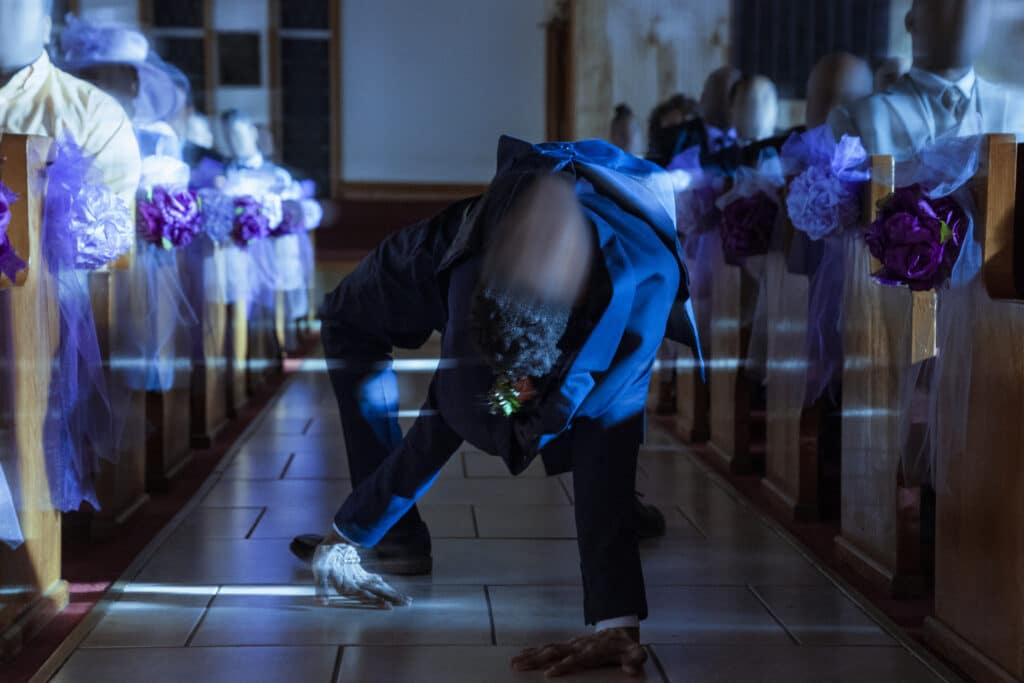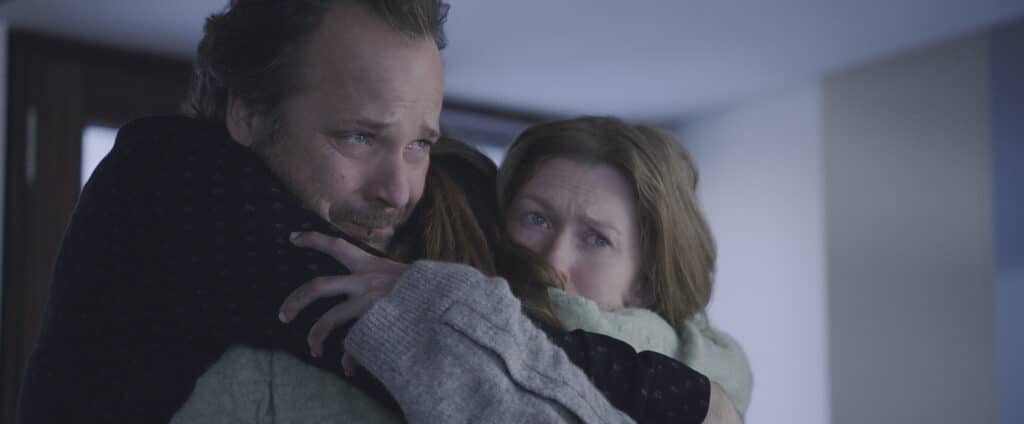Read also:
How to Watch FX Live Without CableHow To Watch AMC Without CableHow to Watch ABC Without CableHow to Watch Paramount Network Without CableBlumhouse and Amazon Prime kick off their anthology series with a pair of intriguing domestic chillers.
Blumhouse has come to dominate the genre movie sphere over the past few years, and for good reason: their unique business model, offering young, ambitious filmmakers small budgets and total creative freedom, has yielded some incredible results like Get Out, The Invisible Man, and others. Welcome to the Blumhouse feels like the purest distillation of that model: a collaboration with Amazon Prime Video to release eight low-budget genre films, some of which have already made the festival rounds but didn’t get distribution, throwing them on Amazon in one big experimental umbrella. This week, that experiment begins with two films that stretch the definition of horror — Black Box and The Lie are, at their core, high-concept family thrillers — but serve as modestly interesting films in their own right.

First is Black Box, a film styled very much in the domestic Black anxieties of Get Out, but with a decidedly sci-fi twist. Written and directed by Emmanuel Osei-Kuffour Jr., Black Box concerns the ways memories haunt us, especially when we suspect they’re not our own. As the film opens, we follow Nolan (Patti Cake$‘s Mamoudou Athie), an amnesiac father still scrambling to reassemble his life after a car accident took his wife and caused him brain damage that’s led to significant memory loss. His daughter (an adorable, if occasionally stagey Amanda Christine) helps out as best she can, leaving notes around the house, but the holes in his memory still leave him unable to get a job.
Help comes in the form of an experimental memory treatment, courtesy of a passionate neuroscientist named Lillian (Phylicia Rashad): Nolan straps himself into a virtual contraption called “Black Box,” which sends his subconscious into the fragments of his remaining memories so he can piece them back together. The Black Box sequences feel like Get Out‘s Sunken Place by way of Inception: Athie is often surrounded in an ink-black void before he trains his brain to create a ‘safe room’ from where he can investigate his memories. But inside his Swiss-cheesed mind rests no small number of dangers, as his wedding or life in an old apartment is interrupted by faceless figures he can’t recognize. There’s also a haunting, lanky figure crawling toward him (complete with contorted limbs that crack and snap in startling ways — easily the film’s most unsettling element).
In its opening half, Black Box plays out to the limits of its high-concept premise: Osei Kuffour Jr.’s script, and Athie’s sensitive, understated performance, keeps its genre trappings firmly ensconced in the everyday stressors of single Black fatherhood, the added wrinkle of his lapsed memory adding another tinge of helplessness to the proceedings. As he starts to learn more about what his memories are telling him, he starts to suspect he’s not the man he used to be. Could he have been abusive in his past life? His doctor friend Gary (Tosin Morohunfola) insists he’s never been that person, which sets up a predictable-but-evocative third act twist that, to the film’s credit, it explores with full-throated conviction (shades of Possessor abound here).
The limited budget and small scale of the story keeps Black Box from fully exploring the implications of its wilder premises. But within its modest auspices, it’s an effective sci-fi indie exercise that’ll hopefully serve as a launching pad for Osei-Kuffour Jr. to see what he can pull off with more resources.
Black Box Trailer:

While Black Box shows you don’t need star power to explore interesting ideas, The Lie shows us what happens when even established veterans can’t save a shaky domestic thriller. Courtesy of writer/director Veena Sud (The Killing), The Lie — a TIFF holdover from 2018 that is only showing up now, for good reason — is a languid, overwrought family thriller about Jay and Rebecca, a well-to-do couple (Peter Sarsgaard and Mireille Enos) moved by desperation to cover up the murder of their daughter Kayla’s (Joey King) high school friend Brittany (Devery Jacobs). (The film is set in a snowy Northern town, so you know it’s secretly a remake of a Scandinavian thriller – in this case, 2015’s Wir Monster.
The setup’s as silly as the resolution: Jay and Kayla happen upon Brittany one snowy morning while driving to school; she gets in; randomly, she asks that they pull over so she can go pee in the woods, bringing Kayla with her. Before you know it, Brittany’s gone, and Kayla claims to have pushed her off a bridge onto a raging river — first as an accident, then, when they return to the house, on purpose. The two don’t know what to do; they’ve run from the scene, and they know the authorities will send their daughter to prison as a murderer. Instinctual protective parent mode takes over, and we know immediately where this all will go from here.
In concept, The Lie could be a neat little morality play about the things we do for our children and the Coen-esque consequences that can come from trying to keep such a nasty little crime secret. But despite the deliberately cold, stifling way Sud films the family’s sparse, modernist home, it’s hard to mine such little drama from such an absurd premise. Frankly, it’s hard to buy into the matrix of decisions made by the family, considering Sud’s script paints them into the most contrived corners possible at every turn. This is compounded when Brittany’s father (The Expanse‘s Cas Anvar, trying his damndest to make this work) comes sniffing around asking questions, which he’ll soon learn to regret.
Whereas Black Box‘s twist a) comes at the top of the third act and b) opens up the film’s premise to new, interesting dimensions, The Lie‘s resolution relies on an 11th-hour turn so preposterous, so unbelievably ridiculous, that what little leeway you might give the film for its crisp-for-its-budget presentation is thrown out the window. It’s cheap, and stupid, and not even in the fun Book of Henry way. The end will leave you as befuddled as Sarsgaard and Enos in those closing scenes, wondering why we even bothered to get involved in the first place.